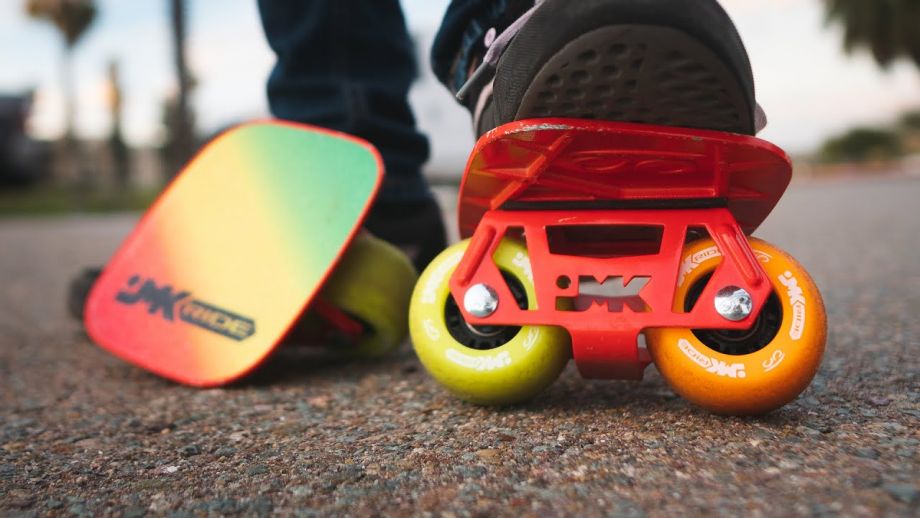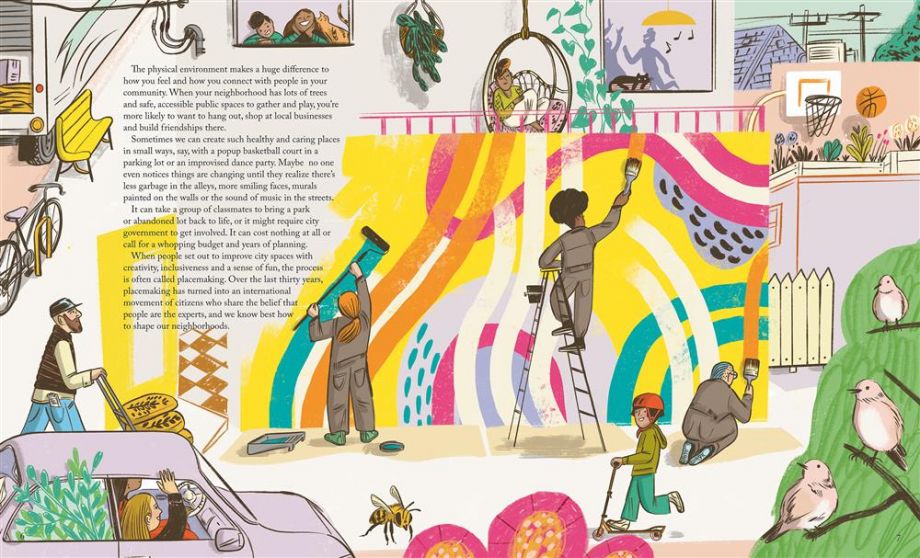Are You A Vanguard? Applications Now Open
Unsplash
This is your first of three free stories this month. Become a free or sustaining member to read unlimited articles, webinars and ebooks.
Become A MemberYou love cities. You love social justice. You get stressed out by finding the perfect gift for people. You’ve come to the right place.
Here are 20-ish gifts for everyone on your list, from a pocket-sized micromobility option to blown glass sculptures that help heal youth affected by gun violence. No affiliate links, just ideas to help you check off your list while supporting equitable cities and small, worker-owned and minority-owned urban businesses.
If you don’t see the perfect gift for your loved one, check out last year’s gift guide, where we curated dozens of other ideas for food, apparel, bike accessories, art, curated gift boxes and more. And if you have an idea that’s not on this list, let us know – we’ll be adding to it through the holiday season with more unique gift options.
And if you’d like to give your loved one the gift of optimism: Check out Next City’s annual print magazine, which collects the best solutions for more just cities that we’ve covered this year.
$150+: They say the best gift you can give someone is peace of mind, by which they of course mean an all-expenses paid home cleaning. If you can support a immigrant women-led, worker-owned cleaning service while doing so, all the better.
Folks in New York or Philadelphia have access to Brightly Cleaning, the country’s first franchise of worker-owned cooperatives. The co-op, which has several locations in New York and recently expanded into Philadelphia, offers fair working conditions, a democratic business model and eco-friendly cleaning. You can book their services and purchase a gift card for any of these ZIP codes through the worker-owned sharing economy platform Up & Go.
Immigrant women-led house cleaning cooperatives exist around the country at a smaller scale. In the Washington, D.C. area, there’s Beloved Community Incubator partner Dulce Hogar. In Chicagoland, try Genesis Cleaning Co-op or Mujeres Brillantes; in San Francisco, try Professional Eco Cleaning or hire members of Dolores Street Community Services’ Women’s Collective.
$34: For centuries, olive trees have been at the core of Palestinian agriculture and culture. If you’re thinking of buying a gift for a foodie, you can support this agricultural heritage by purchasing a bottle of single-origin heritage olive oil from Othmana. The Palestinian American family-owned business bottles this liquid gold from their 350-year-old olive grove in the West Bank. This harvest, they’re donating 100% of their proceeds toward the Palestinian Children Relief Fund.
$10+: For a perfect gift pairing, toss in a bottle of za’atar, the ancient spice mix that’s a staple in Palestinian and Levantine kitchens, from Canaan Palestine or Burlap & Barrel. Olive oil and za’atar make an incredible dip for pita or other bread, as well as a great zesty topping for roasted vegetables.
$390: If you really want to level up your gift and support Palestine’s natural resources and Palestinians’ heritage, adopt an olive tree in the occupied territories through Handmade Palestine. Your donation will support the ongoing care of the tree, and after next year’s harvest, you’ll be sent freshly pressed oil and fermented olives from your tree. You can also purchase handmade keffiyehs, shawls, jewelry, art and other items from Palestinian artists through the same organization – such as these gorgeous earrings, rings and necklaces designed to look like a twisted olive leaf.

JMK Ride
$160+: These freeskates are putting the “micro” in micro transit. I’ll admit it, these mesmerizing freeskate trick videos sent me down a TikTok rabbit hole a few months ago. But turns out these small, ultra-portable freeskates are actually becoming popular with college students, who use them to zoom across campus to their next class, where they toss them into their backpacks.
They’re much more discrete and lightweight than roller skates, and cooler than the Heelys I coveted as a kid. You can definitely find cheaper versions for around $50 elsewhere online, which might be a good way to test the waters, but my Reddit sleuthing suggests these ones from JMK Ride are the real deal.
$25+: Strapped for cash? You can still give a gift worth thousands of dollars. Make a donation to RIP Medical Debt in your loved one’s name to make your money work harder. Every $100 donation relieves $10,000 in medical debt.
Check out these gorgeous new books for kids and teens.
“Alejandria Fights Back” / ¡La Lucha de Alejandria! (ages 5-8) by Leticia Hernández-Linares (written in Spanish and English): For 9-year-old Alejandria, home is her whole neighborhood. But lately the city has been changing. Many people in el barrio are leaving because they can no longer afford their homes, and “For Sale” signs are everywhere. Then Mami receives a letter saying they’ll have to move out too. Alejandria’s not about to give up and leave.
“City of Neighbors” (ages 8-12) by Andrea Curtis, from the ongoing ThinkCities series. Journey around the world to discover how people have been dreaming up new ways to ensure their cities and neighbourhoods are creative, inclusive and environmentally sustainable. Includes a list of ideas for children to get involved in their neighborhoods, along with a glossary and sources for further reading.
“Cardboard City” (teens) by Katarina Jovanovic. Cardboard City follows the lives of two young teens — members of a Romani family. Saida and Nikola experience harsh discrimination and crushing poverty in their informal settlement in Belgrade. Their dreams of escape trigger a family crisis. Introducing young readers to the world of eastern Europe’s Rom, Cardboard City is evocative of the virulent racism, injustice and inhumane conditions endured by this community to this very day.

“City of Neighbors” (House of Anansi, 2023)
$160: Level up your loved one’s bike safety with these nifty, rechargeable light-up pedals that will ensure they’re unmissable. I first came across Redshift’s Arclight City Pedals in the urban cyclist gift guide on the YouTube channel Shifter, who recommends these and 12 other gifts for the bike commuter in your life.
$90: This new board game-cum-educational tool, sold at cost, is designed to help us see how transit agencies can and should be transformed from the inside out. In the creator’s own words: “Transform Transit is a cooperative board game simulating running a transit agency. The team completes projects while dealing with daily events. The constraints are bureaucratic bottlenecks, player morale, and general chaos. With some strategy and luck, you can improve service!”
$20: Run by a couple building upon their Chinese and Japanese families’ fermentation traditions, San Francisco’s Shared Cultures offers miso, furikake, tamari, salt and – if you’re more adventurous in the kitchen — koji starters. I’m also obsessed with these darling foraging basket earrings that Shared Cultures sells. The business was enabled by Bayview Makers Kitchen, an anti-displacement initiative that transformed a vacant restaurant into a community hub featuring local food vendors.
$20+: Three years ago, we covered a unique initiative in Chicago that uses glass blowing as trauma relief for victims of gun violence, veterans, formerly incarcerated people, undocumented and immigrant populations, and public school students in low-income neighborhoods. Pick up a glass sculpture from Firebird Community Arts’ online store to support their work.
“Believe-in-You Money: What Would It Look Like If the Economy Loved Black People?” by Jessica Norwood. Offering a revolution in Black business financing, this book centers the entrepreneur and responds to the systemic failures surrounding Black wealth building.
“Paved Paradise” by Henry Grabar. A brilliant survey of the pain points of the nation’s parking crisis, from Los Angeles to Disney World to New York, stopping at every major American city in between. Grabar reveals how the pathological compulsion for car storage has exacerbated some of our most acute problems – from housing affordability to the accelerating global climate disaster – ultimately, lighting the way for us to free our cities from parking’s cruel yoke.
“All We Were Promised,” by Ashton Lattimore (editor-in-chief of our frequent news collaborator, Prism!). The paths of three young Black women in pre–Civil War Philadelphia unexpectedly — and dangerously — collide in this historical fiction novel inspired by the explosive history of a divided city.
“Justice Warriors” by Matt Bors and Ben Clarkson. Welcome to Bubble City, a city of equality, diversity, and prosperity, with no crime whatsoever. But outside of the Bubble lies the Uninhabited Zone, a vast slum where the majority of the mutant population actually lives. There, a veteran cop is determined to show his naive rookie partner that you can only police the UZ by bending every rule in the book.
“California Against the Sea: Visions for Our Vanishing Coastline” by Rosanna Xia. Along California’s 1,200-mile coastline, the overheated Pacific Ocean is rising and pressing in, imperiling both wildlife and the maritime towns and cities that 27 million people call home. As climate chaos threatens the places we love so fiercely, will we finally grasp our collective capacity for change?
“Carmageddon: How Cars Make Life Worse and What to Do About It” by Daniel Knowles. Knowles takes readers around the world to show the ways car use has impacted people’s lives – from Nairobi, where few people own a car but the city is still cloaked in smog, to Houston, where the Katy Freeway has a mind-boggling 26 lanes and there are 30 parking spaces for every resident, enough land to fit Paris ten times.
“Bay Curious,” by Olivia Allen-Price. With subjects ranging from Marin’s redwood forests to the Winchester Mystery House, from the Black Panther Party’s school program to the invention of the Mai Tai, Bay Curious (based on the award-winning KQED podcast of the same name) gives you the entertaining and informative, weird and wonderful true stories of the San Francisco Bay Area.
You need to wear sunscreen every day, rain or shine, summer or winter. Investing in a high-quality, broad-spectrum sunscreen to protect your body’s largest organ. OK, now that you’re on board, let’s spread the gospel of daily sunscreen to your loved ones.
$28: Black Girl Sunscreen just dropped a holiday bundle at a great price. Designed for Black skin, this SPF 30 lotion is ultra-sheer and leaves no trace. Another solid and affordable option for protecting melanated skin comes from tennis legend Naomi Osaka’s Kinlo.
$40: This SPF 42 option from Shiseido is smooth, lightweight, easy-to-blend, and is designed specifically for urban environments. That sounds wishy washy, I know, but apparently that means it protects against pollution as well as UVA and UVB rays.
$35+: These “You Are On Native Land” hats from Urban Native Era offer a powerful reminder – for the wearer and those who see them, and the message comes emblazoned on a ribbed beanie, corduroy bucket hat, and trucker hat.
$165: If you’re working with a bigger budget, check out The NTVS’s premium quality jackets. You can’t go wrong with the bold, old-school look of this ’90s-inspired nylon pullover. “We want you to buy authentic ‘Native made’ designs opposed to knock-off indigenous art you find at big box stores and online,” the Minnesota-based business says.
$125+: For vintage and reworked clothing, browse through the selection at 4KINSHIP, a Diné-owned “sustainable artwear brand dedicated to producing handmade, one of a kind, restored, repurposed and lovingly upcycled, artisanal and small batch products.” This maxi-length utilitarian skirt, repurposed from vintage military pants, is extremely on-trend.
$5: In October, our El Paso-based reporting fellow wrote about New Mexico Fungi, an urban farm in Albuquerque that was funded by a local CDFI. “I probably wouldn’t have started in a commercial space if I didn’t have that funding,” says founder Estevan Hernandez, whose previous loan application was denied by another bank.
Aysha Khan is the managing editor at Next City.
Follow Aysha .(JavaScript must be enabled to view this email address)

20th Anniversary Solutions of the Year magazine